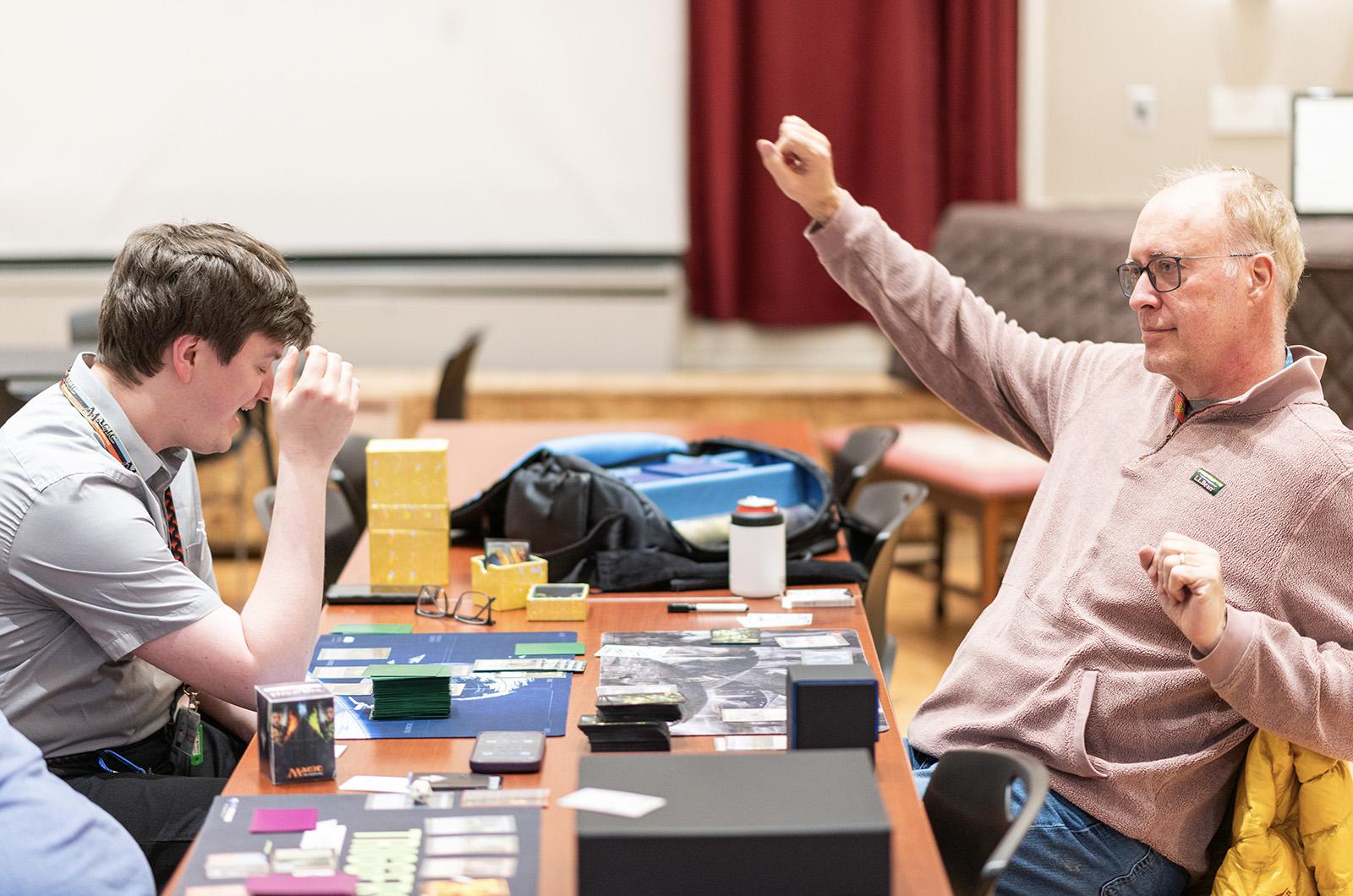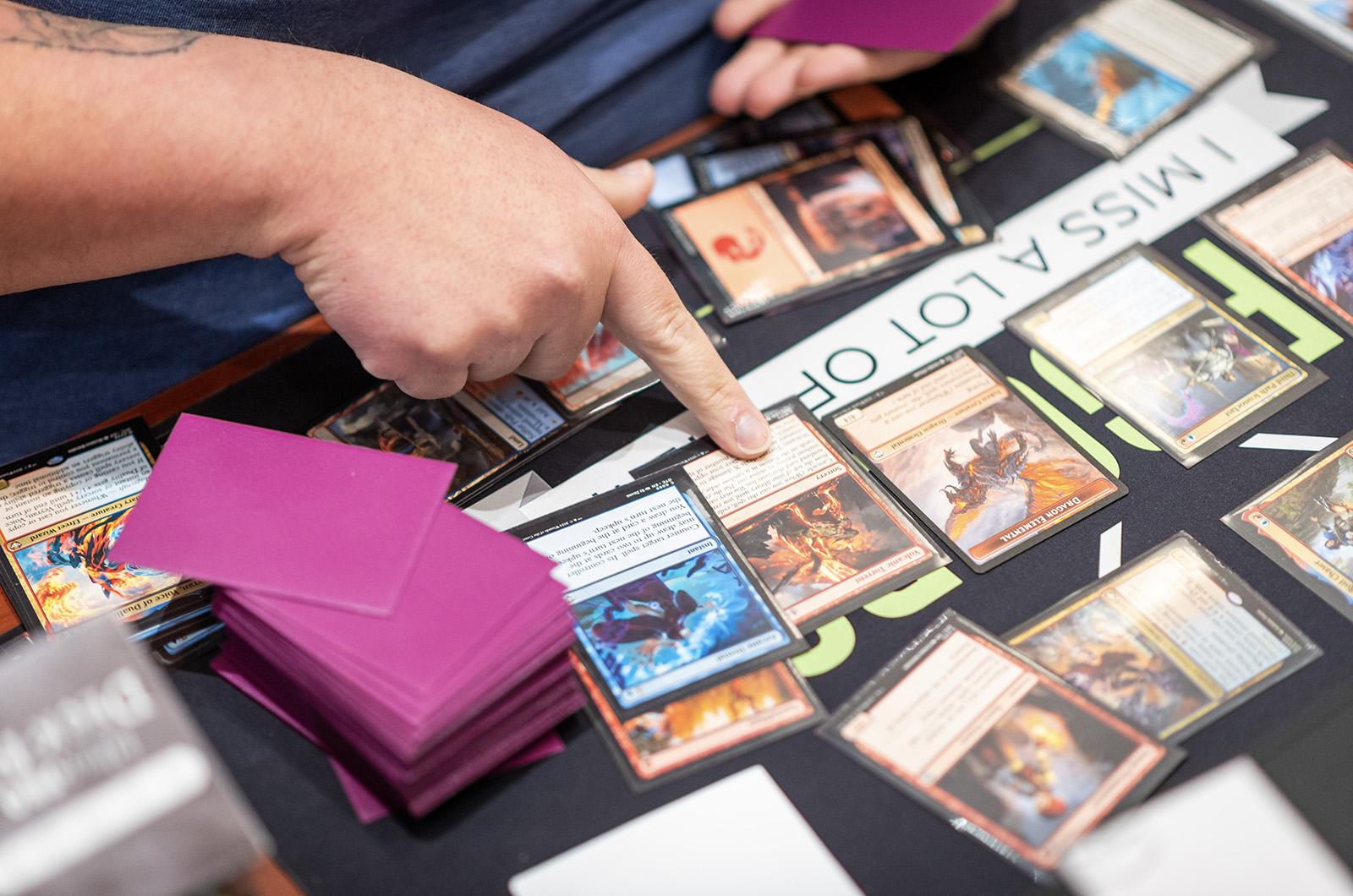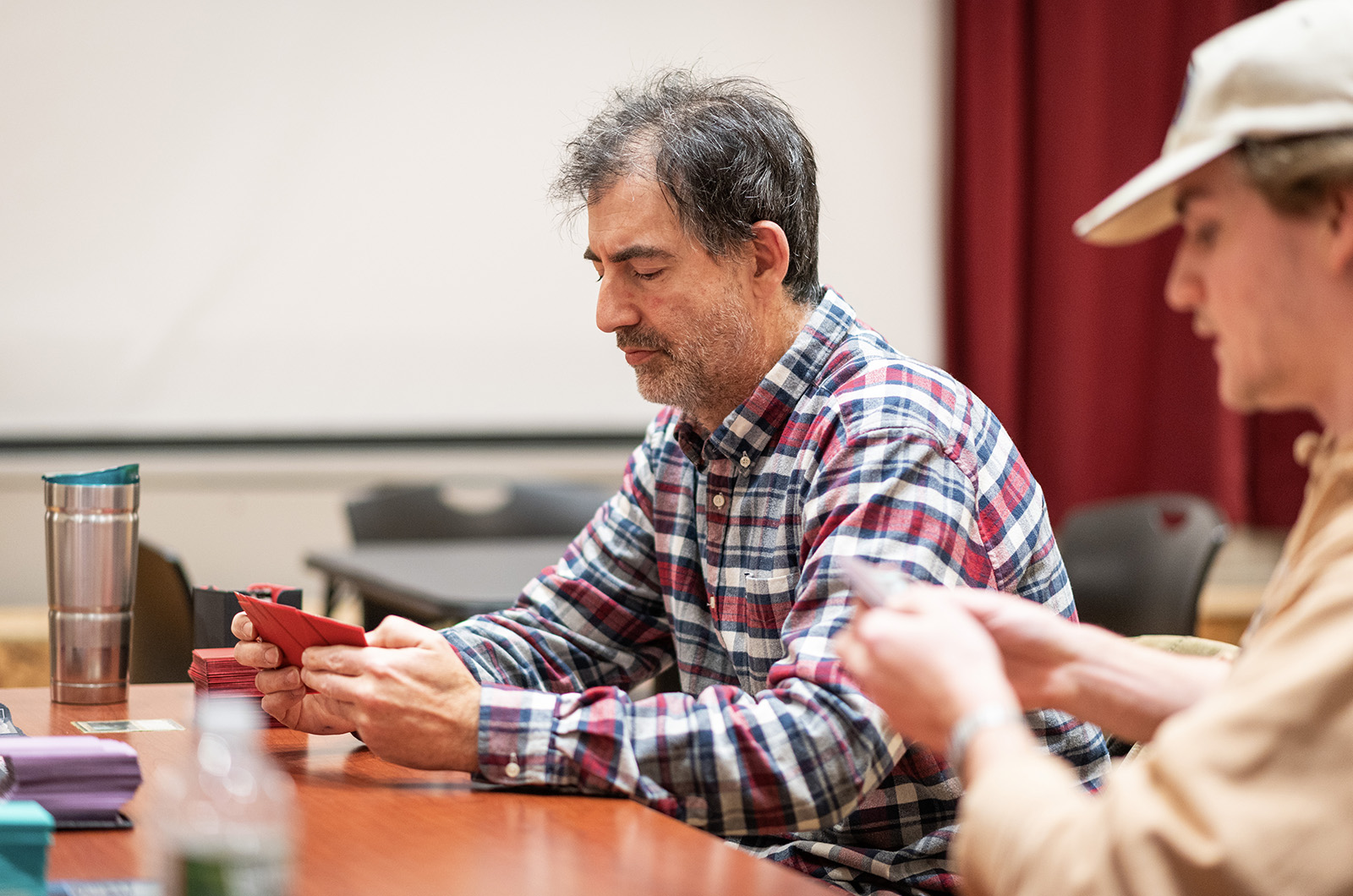In the depth of winter, just beyond the billiards players at the Portuguese American Club, the demonic lord Rakdos descends to attack a horde of screaming creatures.
This demon, displayed on a playing card, was brought to the Portuguese American Club by Fred Hehre, one of a dozen people ranging in age from 20-somethings to 50-somethings there to play Magic: The Gathering, a fantasy card game. Known for its expansive lore and complicated rules, it boils down to casting spells and wreaking havoc with various creatures to take out the competition.
Players have been meeting at the Portuguese American Club for around three years. AJ deBettencourt began organizing the event as Covid-19 restrictions eased in order to find players other than his cousin Joe, who kept beating him. Players now meet regularly on Thursdays to play.
“It feels good. I’m glad that I can get people who want to play a game like this together,” Mr. deBettencourt said.
Thursdays at the Portuguese American Club are only a part of the Magic: The Gathering community on Island. The Oak Bluffs Public Library has hosted events since 2017, and the games run year round.
Marco Daniels, who organizes Magic: The Gathering events at the library, says that although the population of the Island changes through the seasons, there tends to be a consistent group of players.
Mr. Daniels first became interested in the game for the fantasy aspect, and then grew to enjoy the mechanics of it. He said that many new players have similar experiences.
“I played a lot when I was younger, and then I got out of it for a while,” he said. “We get people who come to the library that say, ‘I haven’t played in decades,’ then they start coming much more regularly.”
At the Portuguese American Club last week, John Arthur pulled a box of 100 cards from his bag. Like many players, he builds his own decks of cards. He chooses different creatures and spells that help create a specific theme or strategy. Mr. Arthur also paints the boxes which he uses to hold his decks. The box he started with, a deck he calls the group hug, is decorated with Care Bears holding hands.
The strategy behind his group hug deck is to play cards that offer support to other players so they are less likely to attack him.
“When people send things my way when I’m playing group hug, my defense is to make them feel bad,” he said.
He added that the deck has a 90 per cent success rate.
Players often rebuild their decks, picking up strategies and cards from others at the table. When someone else at the table played a card called necrosynthesis, Mr. Arthur wrote it down to look into later. He said it could be a great addition to another deck of his, one far less friendly than the group hug, that was built around a commander called Grismold the Dreadsower.
Magic: The Gathering was first released in the 1990s and new cards are still being published, which means there are always new spells to cast and cards to purchase. Mr. deBettencourt said that this is part of why decks are always evolving.
“Magic is one of those games where you’ll have a great deck, and then five years later it is either obsolete or you have a bunch of cool cards to add,” he said.
Players say they are eager to lend decks to newcomers who do not have robust collections from which to draw. At the library, there are also cards available to use. Mr. Daniels said that much of the library’s inventory comes from other players who want to make the game more accessible.
John Daley first learned about the game from his sons.
“My kids played it a lot with an older cousin. I started playing with them and they liked to whomp me,” he said, “They liked that they could beat dad at something.”
His sons, Brett and John, are both grown and out of the house now. Magic: The Gathering keeps them in touch. The three play online every Thursday and last week Mr. Daley beat one of his son’s college roommates.
On Friday, Mr. Daley rolled out a play mat at the library for an in-person game. The mat, which depicts Mr. Daley as a wizard, was a gift from his son Brett.

Kara Flanders also learned about the game from her family. Her father has played the game for years. She began to play last year after her partner John Rancourt bought Ms. Flanders her first deck of cards.
For Ms. Flanders, the social element of the game is one of things she appreciates about the game.
“Through my game playing, I’ve been able to have friends and love interests and be social,” she said.
Brian Robinson, another player at the table, moved in to attack Ms. Flanders, while also giving her advice. Mr. Robinson has been playing the game on and off since the 90s, and is someone others rely on for game knowledge and strategic advice. He explained to Ms. Flanders what his card did and outlined possible ways for her to respond.
Mr. Robinson said he has come to enjoy being a mentor to others.
“The first time I started playing, it was ‘look at this cool fantasy thing,’ but now that I’m around others who don’t play so well or have the same knowledge, I really enjoy the teaching element,” he said.
For others, like Will Devanski, the game helps resonates in numerous ways.
“It makes you have to critically think your way out of a situation,” he said. “It teaches you to keep your hopes up because you can pull one card that changes everything.”






Comments (1)
Comments
Comment policy »